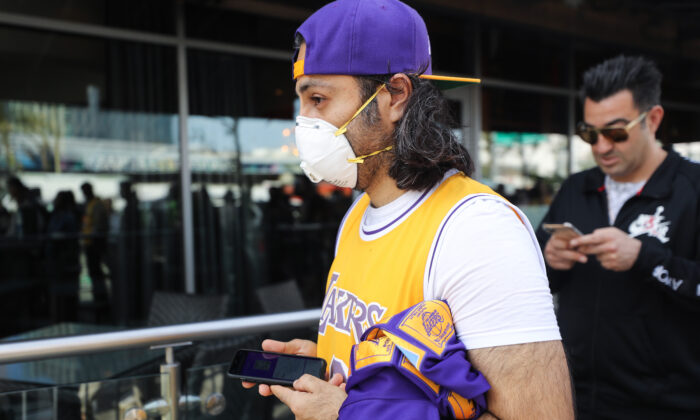Trump Administration Starts Enforcing ‘Public Charge’ Immigration Rule
Americans should prepare for community spread of the new coronavirus, with families sitting down and explaining that there could very well be a rapid, sudden increase in the number of patients, a top federal health official said on Tuesday.
In an escalation from previous warnings, Dr. Nancy Messonnier, a Centers for Disease Control and Prevention (CDC) official, said Americans should prepare for their lives to be disrupted by spread of the new virus, including closures of schools and businesses.
She told reporters in a phone call that the number of cases popping up without a known source of exposure in Italy, Iran, South Korea, and other countries “makes all of us feel that the risk of spread in the United States is increasing.”
Messonnier recounted sitting down with her family at breakfast on Tuesday and telling her children that they’re likely not at risk of getting infected with COVID-19, the disease the virus causes, at the moment, but that the family needed to be prepared for their lives to significantly change.
With no vaccine and no proven treatment for the virus, health officials are focusing on non-pharmaceutical interventions, which includes three categories: personal, community, and environmental. Personal interventions include routine recommendations like washing hands and staying home when sick and measures specific to pandemics such as people voluntarily isolating themselves at home even if they’re not sick if a member of their household has become ill.
 A medical staff sets up a pre-triage medical tent in front of Santa Maria Nuova Hospital in Florence, Italy, on Feb. 25, 2020, as Tuscany reported its first two cases of COVID-19. (Carlo Bressan/AFP via Getty Images)
A medical staff sets up a pre-triage medical tent in front of Santa Maria Nuova Hospital in Florence, Italy, on Feb. 25, 2020, as Tuscany reported its first two cases of COVID-19. (Carlo Bressan/AFP via Getty Images)Community interventions can include closing schools and transitioning to Internet-based teleschooling and changing business meetings from in-person to online as well as locales postponing or cancelling large gatherings.
Adults should contact school officials and ask about plans for teleschooling and their workplace to look into working from home. People could miss work and lose income, Messonnier said.
“These are things that people need to start thinking about now,” she said.
Environmental interventions primarily revolve around cleaning surfaces.
Local communities will need to decide on which interventions to implement.
The virus emerged in China in December 2019 and has since spread to dozens of countries, with a rapidly increase in the number of cases in Italy, Iran, and South Korea this week, among other nations. The virus causes a disease that has similar symptoms to the influenza, including fever, headache, and difficulty breathing.
 Medial workers wearing protective gear move a patient suspected of contracting the new coronavirus from an ambulance to the Kyungpook National University Hospital in Daegu, South Korea, on Feb. 19, 2020. (Kim Jong-un/Yonhap via AP)
Medial workers wearing protective gear move a patient suspected of contracting the new coronavirus from an ambulance to the Kyungpook National University Hospital in Daegu, South Korea, on Feb. 19, 2020. (Kim Jong-un/Yonhap via AP)The United States has not adjusted which people should be tested even as the virus spreads rapidly in countries outside of China but authorities are discussing shifting the case definition and would likely do so if community spread starts occurring, Messonnier said.
Twelve state or local health departments are now equipped to test locally for the virus, an increase from four late last week. Testing locally is critical because of faster turnaround, Kelly Wroblewski, director of infectious diseases for the Association of Public Health Laboratories, told The Epoch Times.
As there’s potentially more cases in the United States, more labs need the capability of testing to get a better handle on the spread, she said before Messonnier’s telebriefing.
“Right now CDC is fully capable of handling the specimen load that’s being tested. Should there be an increase in cases in the U.S. like they’re seeing in Korea, like they’re seeing in Italy, we would need more capacity at a state level,” Wroblewski said.
The CDC is working on getting more of the test kits to state and local labs and commercial tests are also expected to become available soon, Messonnier said. All 50 states received kits but some labs, during the verification process, discovered an issue with a reagent.
This article is from the Internet:US Official Warns Americans: Prepare for Community Spread of New Coronavirus
US Military Dependent in South Korea Confirmed to Have Coronavirus
